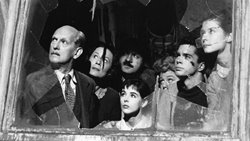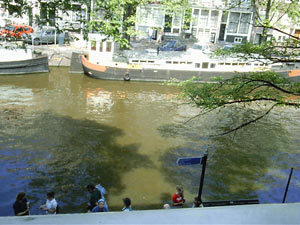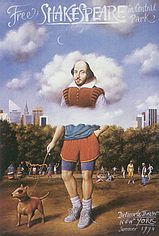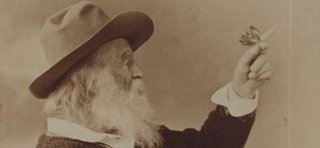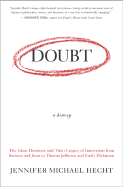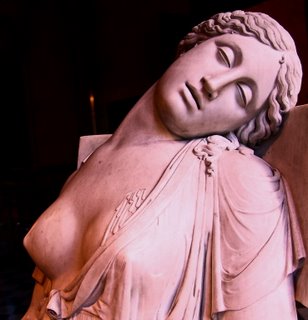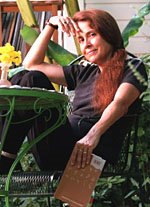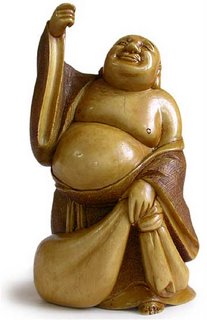
I said on the site that I had been "forced by circumstances lately to think back on my years teaching young adults" and two friends emailed to ask what that meant.
Okay - I'm preparing a new course (graduate level) that I'll start teaching in mid-January, but I have also applied for a job at a high school (though it is not an instructional position). So, when I heard Garrison Keillor read "Kryptonite" by Ron Koertge (see below) from Ron's book Fever, Red Hen Press, 2006) on The Writer's Almanac recently, it did get me thinking about teaching poetry sessions in secondary school.
It's a poem I would use in class and that doesn't mean that it's a poem for kids. If I was using it with my middle school students, I'd get them to talk about fictional heroes - comic book or literature - and we'd talk about what might get boring about being them or being with them. And after we had hacked at Batman (out every night), Harry Potter (enough with the headaches, finish off Voldemort) and the crew, I would probably be the one to bring up some classic (or classical) heroes. Then, we would read this poem and talk about using them for good old-fashioned poetry fun.
I know the sophisticated Poets Online readers will automatically jump right to the loftier fictional heroes, but the prompt is the same idea. Probably best to choose someone admirable, special qualities (powers?) will help, name recognition makes it easier for all of us - then turn that hero upside down. Following our model, you might want to bring another character to mix things up. A chance for your own monomythologizing. Lots of possible topics: Catwoman, King Arthur, Ulysses, Silver Surfer and Bilbo Baggins.
As always, information on submitting your poem are on the site at http://poetsonline.org
Holidays and all mean we get some extra time on this one - January 7, 2007 is the submission deadline.
Best wishes for the new year.
About Ron Koertge He grew up in an old mining town in Illinois, on the banks of the Mississippi River. He has lived in California for many years and has been on the faculty of Pasadena City College for more than 35 years. His poetry collections include, Fever, and Making Love to Roget's Wife. He also teaches in the M.F.A. Writing for Children Program at Vermont College and is the author of The Arizona Kid, Where the Missing Never Stops, and Tiger, Tiger, Burning Bright, all of which were ALA Best Books for Young Adults.
In his own words... "As a child, I was very ill with rheumatic fever as a child. It is a very dangerous disease, and often left its victims with heart trouble. That isn't true for me, but being all by myself for three months (in bed, no exercise, no stimulation of any kind) made me a broody, look-inside-myself kind of kid. In graduate school, I read a French critic who said poets are made by being ill as children. Lo and behold, I became (and still am) a poet..."
more about Ron by Ron



